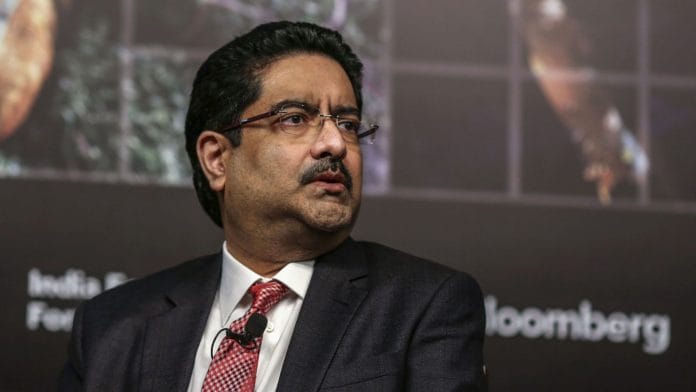New Delhi/Mumbai: Indian billionaire Kumar Mangalam Birla, who oversees the $46 billion Aditya Birla Group spread across 36 countries, is no longer keen to acquire any firm with a globally diversified supply chain as protectionism and the pandemic increasingly curb the movement of products and people.
“We wouldn’t look at a company or a business where you source in one corner of the world and sell in another corner of the world,” Birla told Haslinda Amin in an interview during the Qatar Economic Forum. “That’s a reset that has happened on account of growing protectionism.”
Acquisitive conglomerates such as the one Birla helms — he has acquired more than 40 companies in the last 25 years — are now pivoting toward creating regional strongholds that can avoid getting tripped up in an increasingly divided world. Even cross-border M&A needs to have a “strong element of regionalization,” according to Birla, in this new world.
China’s rapid economic rise in the past few years and the coronavirus pandemic more recently have exposed the vulnerabilities of global supply chains. This, in turn, has spurred almost every nation, be it the U.S., European Union or Australia, to turn inward, protect domestic enterprises and pursue self-reliance — a macroeconomic policy shift that has complicated growth plans for multinational corporations.
Different countries are following different policies to create homegrown champions, according to Birla, who added that even globalization needs to have “a very sharp dimension of regionalization to it.”
Birla has seen his wealth surge almost 52% this year to $10.4 billion, according to the Bloomberg Billionaires Index. Grasim Industries Ltd., his group’s flagship firm, has jumped more than 61% this year, outstripping the 10% rise in the benchmark S&P BSE Sensex.
“We’re looking at regionalism as a very big theme,” he said. “Regional hubs, regional presence, regional employment, catering to regional demand. I would say we’re a global company but rooted in local economics.”- Bloomberg
Also read: Tensions between nationalism & globalisation will define this decade, says Birla






